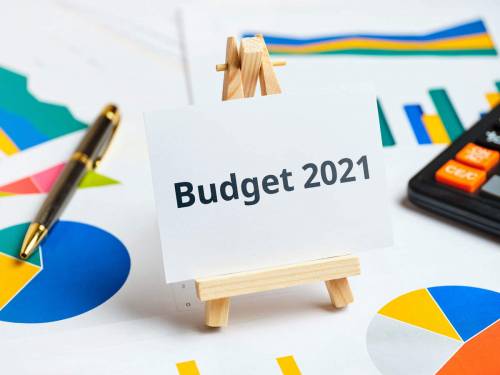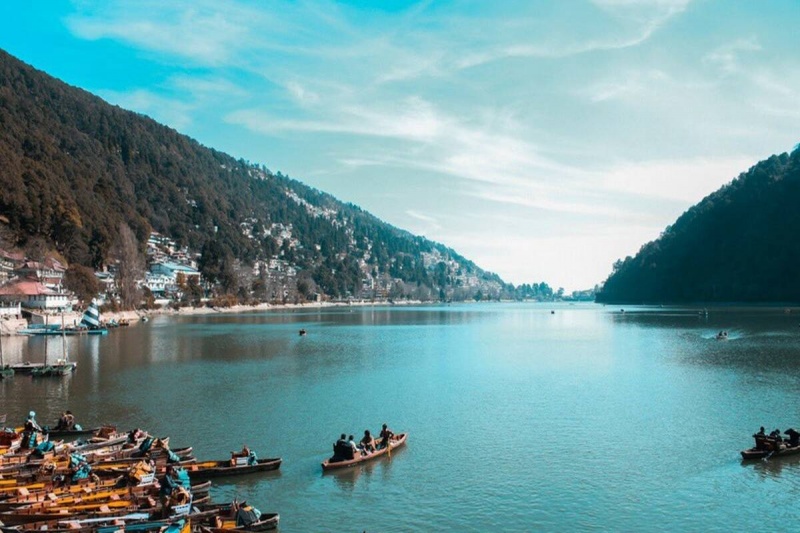Union Budget 2021: Expectations of the Travel & Hospitality Sector
Time to remove the impact of demand A few days ago, the FHRAI asked the center to put tourism on a concurrent list. It will lead to a better organization of th
- by B2B Desk 2021-01-27 07:16:41
As the vaccination campaign is doing its part to mitigate the impact of the COVID-19 pandemic, the travel and hospitality sector expects the Union budget 2021 to revive its long battle to secure the status of the industry, tax relief. and more. Business2Business interacted with leaders in the travel and hospitality industry who expressed their budget projections. Read on to learn more about what they have in mind.
Time to remove the impact of demand
A few days ago, the FHRAI asked the center to put tourism on a concurrent list. It will lead to a better organization of the sector with duly defined responsibilities between the center and the state. Highlighting the same, Bhanu Chopra, founder and president of RateGain, said: "The hospitality and tourism industry has been among the most affected by the COVID-19 outbreak. Now, there seems to be light at the end of the tunnel at the request that it is increasing slowly and steadily. "

He believes that a positive decision will support the sector. "Budget provisions, better regulations, and policy decisions can be of great help to businesses of all shapes and sizes. The government should also consider granting infrastructure status to the sector, given its importance in revitalizing the economy. Doing so will allow companies to do so. companies benefit from electricity, water and land at industrial prices. And better loan rates. "
Also, Zubin Saxena, Managing Director and Vice President of Operations, South Asia, Radisson Hotel Group, stated that the travel and tourism sector has faced a demand shock in the last 10 to 12 months, which has arisen due to the COVID pandemic. -19 and lack of infrastructure.
He continued: "We hope that the Union budget 2021 will allocate sufficient resources to help the sector appear stronger outside of these times."
Strengthening the sector with stimulus packages
Vibhas Prasad, Director of Leisure Hotels Group, said that the hospitality sector is one of the largest employment sectors in India. He also emphasized the fact that they had revised their offers amid restrictions to increase their income.

Speaking of revitalizing the sector, Prasad said: "The main idea that emerged was that the greater push to visit local destinations is imperative and must be pursued strongly to stimulate the hotel industry to return to the path of rebirth."
Acknowledging the changing trends, he said: "We strongly expect the recovery to be strong, especially at the local level. We are exploring new ways to introduce our spaces and services to generate revenue. On top of that, we expect some MICE movement to start in the next three to four months, not necessarily sitting in the conference room type, but doing activities like rafting or safari, and even bungee jumping. Check out the inquiries and look forward to MICE outdoor events in the coming months. "
He added: "The state of the infrastructure for hotels with investments over 25 million rupees will benefit us, excluding the land, as is the current case, only those hotel projects with investments of more than 200 million rupees get the status of the infrastructure". limiting profits for luxury hospitality companies. This will also allow financing if the government can also consider issuing loan guarantees for such projects that will allow credit to flow from banks. "
According to Prasad, there should be a reduction in GST fees imposed on services provided by hotels. He said the goods and services tax on room reservations should be lowered from 18 percent to 12 percent with full use of input credit. This will improve occupancy and help hotels to be more competitive and on par with other Asian economies such as Hong Kong, Thailand and Singapore.
Expect the much needed booster injections
Addressing the scenario that the pandemic has created for the travel and hospitality sector, Roop Pratap Choudhary, General Manager of Noor Mahal, said: “The pandemic is the worst crisis to hit the industry and affects all sectors: domestic. , domestic and export; and all sectors: entertainment, conventions, heritage and adventure The crisis has caused an unimaginable cessation of tourism activity in the country, estimated at US $ 28 billion, and related activities.
Referring to figures released by the Hotel Association of India (HAI), Choudhary said that the hospitality sector had incurred a revenue loss of Rs 90 billion in lost revenue in 2020.
He believes that despite the loss, this sector has enormous potential to support India's mission of self-reliance by generating great business and job opportunities. Hence, making India a world leader in the tourism and travel sector.
Referring to the contribution of the tourism and travel sector to gross domestic product, he said: "The sector contributes about 10 percent of GDP to the economy and generates between 9 and 10 percent of total employment, so the sector needs immediate and special attention. "
"We hope that the union budget will provide the much-needed injections of support to fuel the growth of tourism and hospitality in India. Wide-ranging political initiatives to boost domestic tourism, special incentives for infrastructure development, reduction of the GST and special stimulus packages can help the industry move faster on the road to recovery
Hoping for a special push to develop local infrastructure, he said: "The development of road networks throughout the country provides regional and independent players, in locations outside the main network, a fair opportunity to compete with the Major Hotel Circles Other infrastructure developments will help in Tier Two cities are increasing the potential for regional hotel companies and may tilt the whole picture.
Emphasizing the need for a liberal and reasonable investment and lending framework, he said: "A more flexible and tolerant financial environment can provide the right for young players in the hotel industry to explore more avenues for growth in these challenging times. To encourage guest occupancy, promote local travel and help to be small / independent properties More competitive in the market, the GST on room reservations should be reduced from 18% to 10%, and the current GST of 18% for hotel restaurants should be reduced to 12%. "We expect in the budget to subject liquor to GST, eliminate multiple government fees, eliminate license fees, and increase license terms."
He said the government could consider extending working capital loans to micro, small and medium-sized enterprises to provide job opportunities in the hospitality and tourism sector. “The pandemic has also driven new trends in this sector such as intimate weddings, short vacations that can be driven, stays in the city, etc. We hope that these newly created sectors will serve as additional sources of income for the sector, ”he concluded.
Also Read: Union Budget 2021: Five things the government can do to revive real estate
POPULAR POSTS
10 Trends That Will Shape the Hospitality Industry in 2021
by B2B Desk, 2021-01-06 06:35:14
No cheer for hospitality and travel industry this New Year
by B2B Desk, 2020-12-08 08:58:14
Government eases visa, travel restrictions for foreign and Indian nationals
by B2B Desk, 2020-10-23 05:50:16
Should you plan a vacation now? The answers to these 5 questions will help you decide
by B2B Desk, 2020-08-11 07:12:19
Dubai launches Covid-19 compliance stamp for tourism, retail establishments
by B2B Desk, 2020-07-23 09:21:56
The Travel and Hospitality Industry are staring at a revenue loss of Rs.5 Trillion: Covid-19
by aditi verma, 2020-04-20 06:20:13
What is hospitality management? Salary | Requirement | Skills | Responsibilities
by B2B Desk, 2020-01-13 06:52:24
RECENTLY PUBLISHED

Loan EMIs to Drop as RBI Slashes Repo Rate - Full MPC December 2025 Highlights
- by Shan, 2025-12-05 11:49:44

Pine Labs IPO 2025: Listing Date, Grey Market Premium, and Expert Outlook
- by Shan, 2025-11-05 09:57:07

The Agentic Revolution: Why Salesforce Is Betting Its Future on AI Agents
- by Shan, 2025-11-05 10:29:23

Top 10 Insurance Companies in India 2026: Life, Health, and General Insurance Leaders Explained
- by Shan, 2025-10-30 10:06:42

OpenAI Offers ChatGPT Go Free in India: What’s Behind This Big AI Giveaway?
- by Shan, 2025-10-28 12:19:11

Best Silver Investment Platforms for 2025: From CFDs to Digital Vaults Explained
- by Shan, 2025-10-23 12:22:46




 Subscribe now
Subscribe now 